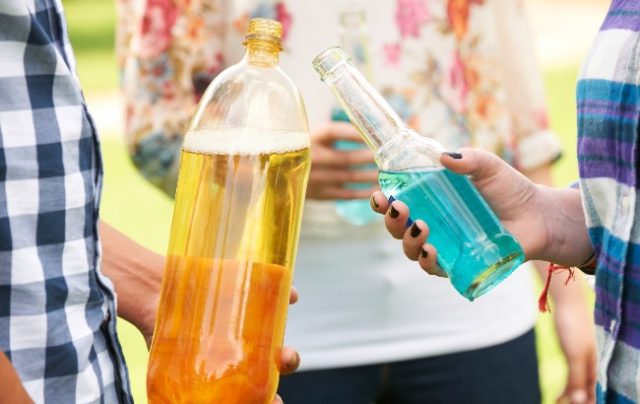Supermarkets blamed for antisocial drinking
Nearly two-thirds of UK consumers believe their local supermarket or convenience store contributes to the issue of underage drinking, according to a new survey.

In a survey of 2,645 UK consumers by digital identity platform ID Crypt Global, it was revealed that 39% believe there is an issue within their local area when it comes to minors consuming alcohol and tobacco illegally.
CEO and founder of ID Crypt Global, Lauren Wilson-Smith, commented: “Whether it be knowingly, or due to being duped by fake ID, our local supermarkets and corner shops are often one of the main sources for minors when looking to illegally obtain alcohol and tobacco products.
“Not only are these stores setting themselves up for some severe repercussions if caught, but providing minors with alcohol can directly fuel wider antisocial behaviour in the local area.”
As many as 65% of those surveyed by ID Crypt Global felt that their local supermarket or convenience store was a contributing factor behind the issues concerning antisocial behaviour in their local community, with 81% saying they would like to see their local supermarket or convenience store be more proactive on the issue of alcohol and tobacco consumption by minors.
Wilson-Smith added: “The vast majority of consumers, like myself, would be prepared to boycott a local store if it was to be prosecuted for selling age-prohibited products to minors.”
Community Alcohol Partnerships
In March, an initiative was launched in Ripon, North Yorkshire, to help tackle underage drinking.
It came as part of North Yorkshire Police’s response to concerns raised by residents about antisocial behaviour, underage drinking and other crime linked to it.
The work is delivered through a Community Alcohol Partnership (CAP), which is made up of local authorities, police, schools, retailers, neighbourhood groups and health providers, working together to prevent alcohol-related harm to young people and improve the quality of life for residents.
CAPs have been introduced in more than 250 communities across the UK, including in Airdrie, North Lanarkshire, this month.
The implementation of CAPs has reported to have led to a 62% reduction in weekly drinking by teenagers, a 50% drop in young people hanging round shops and asking adults to buy alcohol, and a 42% decline in antisocial behaviour involving drink in participating communities.
There has also been a 68% decrease in residents reporting children and young people drinking in public places to be ‘a very big or fairly big problem’.
After CAP training, 98% of retailers passed a Challenge 25 compliance test, from an average baseline of 50%.
Tesco in Airdrie is one of a number of retailers supporting the work of the CAP locally.
Joe White, licensing executive at Tesco said: “We know how much of a difference a CAP has made in other areas and, as a responsible retailer we will be making sure we play our part in the activity planned locally.”
Related news
Is this the world’s coldest Martini?
